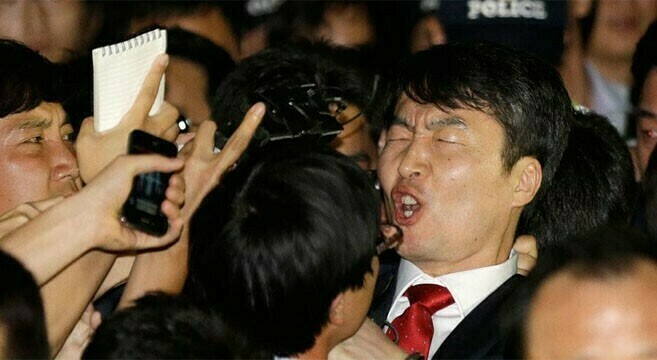As he departed the Supreme Court on Thursday afternoon, Lee Seok-ki sought to convince observers that his conviction represented nothing less than the death of Korean democracy and rule of law. Shouting that “in our country” justice has died, Lee’s defiant stance against the Park Geun-hye administration – he would like you to believe – is all that stands between South Korea and a return to the dark days of authoritarian rule. Fortunately for everyone else, the reality is different.
The Supreme Court judgment was the latest of four involving Lee: three against Lee and a group of other political officials, and one against the now defunct Unified Progressive Party of which they had been a part.
As he departed the Supreme Court on Thursday afternoon, Lee Seok-ki sought to convince observers that his conviction represented nothing less than the death of Korean democracy and rule of law. Shouting that “in our country” justice has died, Lee’s defiant stance against the Park Geun-hye administration – he would like you to believe – is all that stands between South Korea and a return to the dark days of authoritarian rule. Fortunately for everyone else, the reality is different.
The Supreme Court judgment was the latest of four involving Lee: three against Lee and a group of other political officials, and one against the now defunct Unified Progressive Party of which they had been a part.
Become a member for less
than $5.75 per week.
Unlimited access to all of NK News: reporting, investigations, analysis
The NK News Daily Update, an email newsletter to keep you in the loop
Searchable archive of all content, photo galleries, special columns
Contact NK News reporters with tips or requests for reporting
Get unlimited access to all NK News content, including original reporting, investigations, and analyses by our team of DPRK experts.
Subscribe now
All major cards accepted. No commitments – you can cancel any time.












